Plates from Eggshells, Slippers From Leaves: Delhi Innovator Turns Waste to Wealth
Midushi Kochhar from Delhi is changing the narrative with her venture YLEM, which takes waste and turns it into beautiful cutlery and shoes.
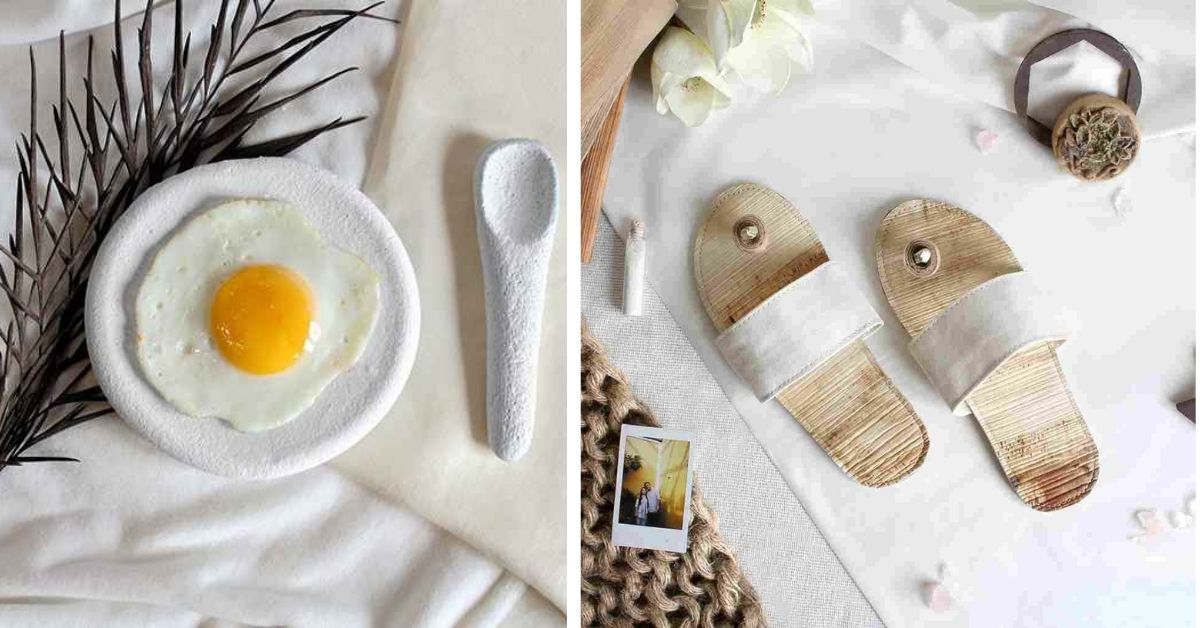
For anyone who’d walk into eight-year-old Midushi Kochhar’s bedroom in Delhi, a strange but beautiful sight would greet them — seashells strung together, pebbles in jars, dried flowers turned into potpourri, vibrant snake skins collected on a hike and the list goes on.
While other children her age would have toys filling the room, why was Midushi’s idea of collectables so different?
“The love for strange things came naturally to me,” the now 27-year-old tells The Better India over a call. “I’d weave a story in my mind around these unique items and display them. It never mattered if others found them beautiful. What mattered is that they were beautiful to me.”
Throughout her growing-up years, this passion persisted and she went on to train as an industrial designer at Central St Martins, University of the Arts London in the year 2017 where she would constantly look for innovative designs. So when it was time for the final graduation project, she decided to put her idea of ‘eggware’ to the test. Here she used eggshells to create plates and spoons.
“I hadn’t a clue that this project of mine would one day be the forerunner of my venture — YLEM,” she says.
Best out of waste
With a graduation project that stunned her professors, Midushi decided to take her skills to the real world and started a venture in the Netherlands in 2020. Makers on the move aimed at collecting local waste from manufacturing areas and building a material bank. The materials would then be delivered to schools in the area for children to use in their art projects.
Inspired by the take-off of this project, she returned to India when the COVID pandemic hit in an attempt to be closer to home. In June 2021 she started YLEM, a brand that would focus on making items out of innovative materials that others would consider waste.
Interestingly, the name YLEM means ‘a hypothetical initial substance of the Universe from which all matter is derived.’ This, she says, coincided with her design philosophy.
In time, realisation dawned that while eggshells were one waste item to come from chickens, how could other waste items of the bird be repurposed? “I started thinking in the direction of feathers and wanted to come up with a design and methodology aimed at rebuilding symbiotic connections. Everything in nature has value but humans have lost this circularity,” she says.
Today, as part of YLEM, two products are the focus — eggware and slippers made of leaves called ‘hasiroo’.
An ‘egg’cellent idea paves the way for a business
Elaborating on these products, Midushi says the eggware is a ‘ceramic and concrete-like material made out of eggshells along with a biobinder’.
These are more of a bespoke luxury product meant for decor and hence production is done on-demand basis of 20 to 30 orders per batch. The unique items have made their way to the shores of China and Milan.
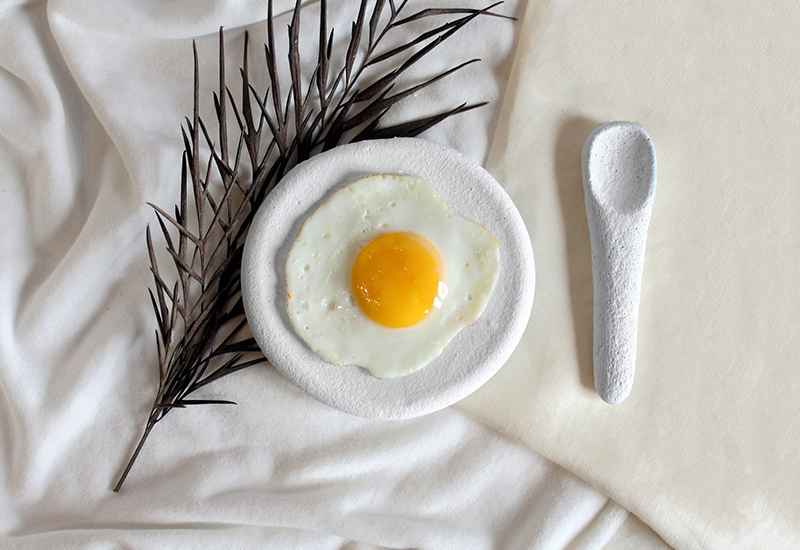
“They were displayed at the Sustainable Design Material Museum, Guangzhou, China and were also part of Milan Design Week 2021, London Design Festival 2019.”
Another product in the works is home decor made from upcycled feathers of chickens. “Due to the enormous binding strength they have, we combined them with a bioplastic and created a long-lasting, flexible and wet- mouldable material,” says Midushi.
One would imagine that producing ceramics out of eggshells would be a messy affair and the fashion designer does not deny this.
“When eggware was at an experimental stage, waste eggshells were collected from busy breakfast cafes, street vendors and food stalls,” she says. “Daily collection was a hassle but fulfilled our requirement at the time. We would collect the shells, clean them, sanitise them to remove the odour.”
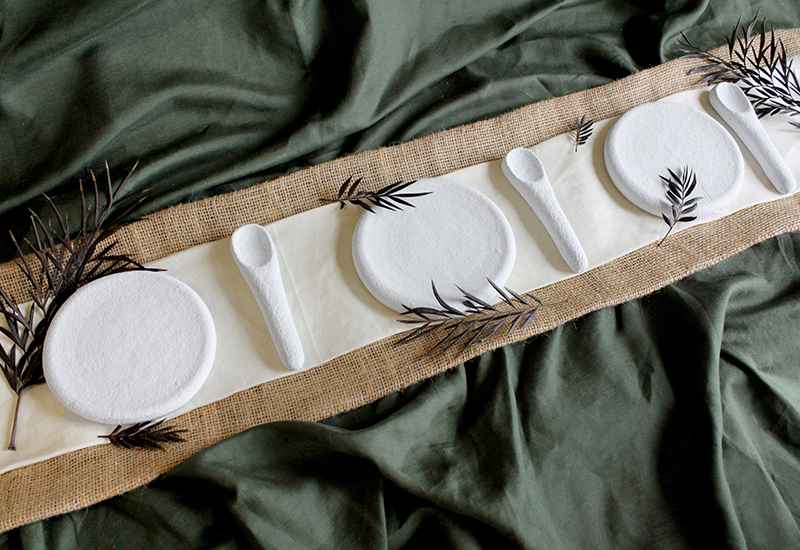
However, she has now partnered with an innovative egg processing company in Delhi and they supply the eggshell powder and flakes.
“This works both ways,” says Midushi. “One is that it reduces their waste while also providing us with raw material. It creates a wasteless circular system for resources that would have otherwise ended in a landfill or incinerated.”
The second hit product is the ‘hasiroo’ slippers made of fallen leaves. These natural fibre leather products were the brainchild of her mother Sakshi Kochhar, who has a background in fashion and has worked for export houses.
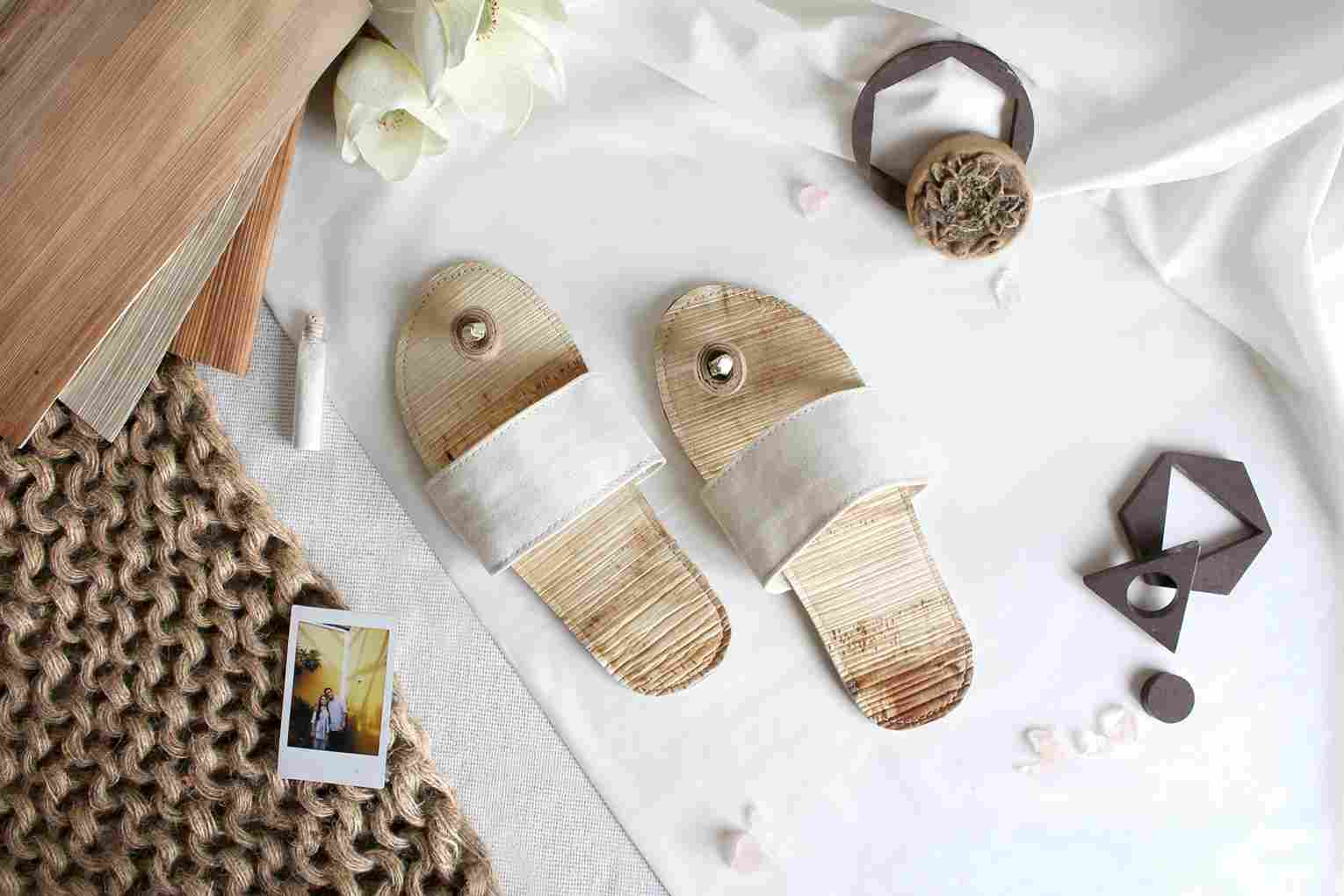
In Sakshi’s words, it is “refreshing to reconnect with the field of fashion again after being an educator for years”. The mother-daughter duo has contrasting ideas when it comes to design and this Sakshi says makes the journey even more fascinating. “It allows for us to explore different perspectives beyond the lens of our mother-daughter dynamic.”
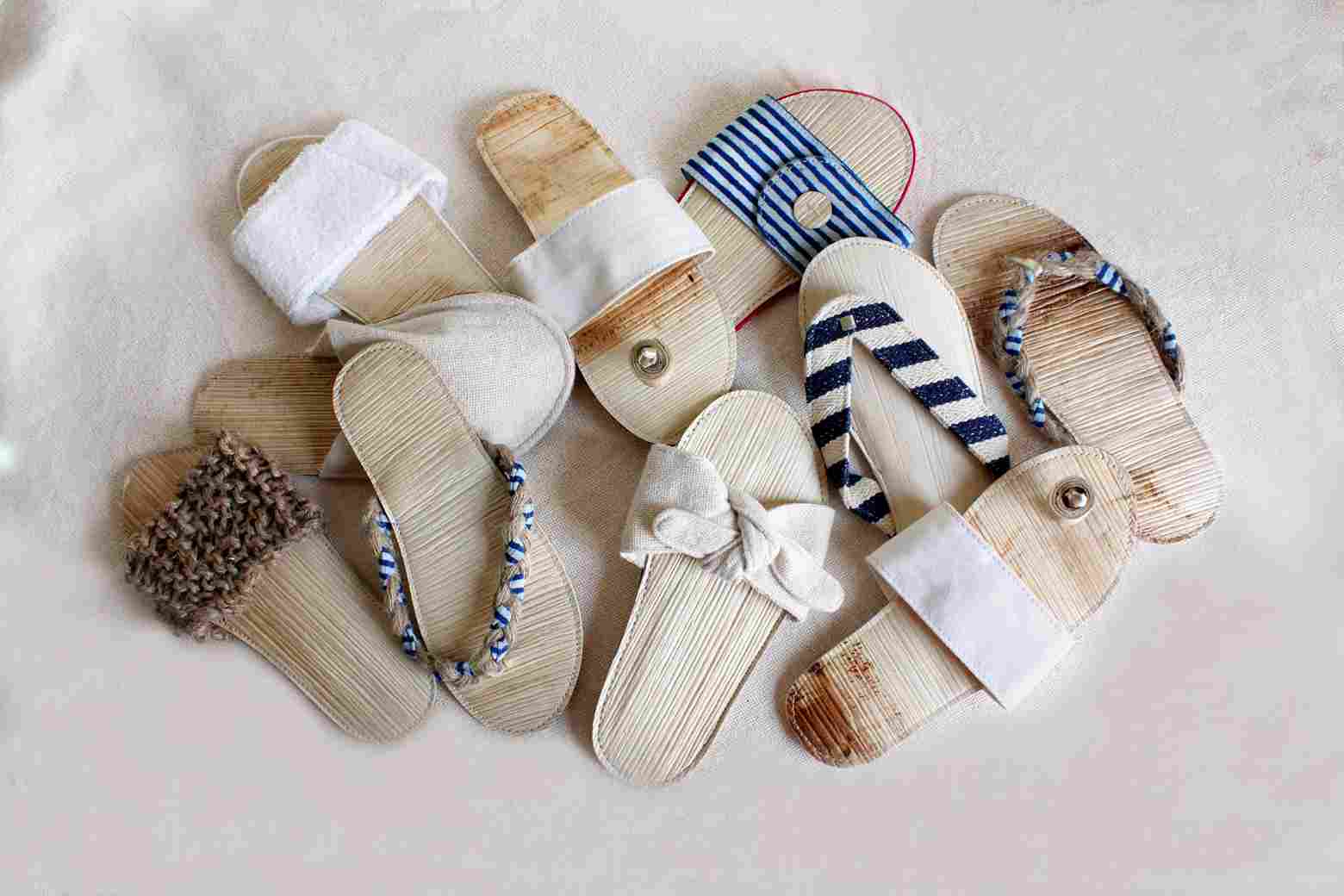
The slippers have been a hit at YLEM and see an order inflow of over 400 pairs per month, says Midushi. She emphasises that while the idea to repurpose waste into products is tough, the real challenge is execution. “In the case of the slippers, the leaves are seasonal and hence we plan for production only at particular times of the year.”
The mother-daughter duo does the collecting and washing of the leaves. The manufacturing process is then outsourced to units in Delhi.
Has it been easy building a venture out of materials that many people would consider waste?
Her laugh answers my question.
“The first response from people is surprise and wonder. They are baffled as to how something ‘disgusting’ can be converted into something beautiful.”
But, as the child in her has always believed, the strange things in life often end up being more beautiful. “I want my audience to understand the implications of their lifestyle. I want them to make changes but at the same time I do not want to preach,” she says, adding that her quest for sustainability has always been inspired by a quote by Kate Krebbs — ‘waste is a design flaw’.
The process of creating these products from waste is a time-consuming one, says Midushi. “It takes years to go from workshop investigations to scalable solutions. In addition, the raw material’s sourcing and processing depend on the project and its scale.”
But she adds that they are positive that their circular model is meant to last and are always experimenting with new sources of waste. “We will find a way to grow.”
While the footwear retails for Rs 500 a pair the eggware goes to a few thousand as it is bespoke and luxury. The products are shipped internationally too, to the US, UK and Europe.
Aishwarya Kaura, a customer who has purchased the slippers and wears them daily says they are lightweight and a perfect break for her feet on long hours of walking. “I carried the slippers for my trip to Italy. They fit easily in my heavy luggage and are so comfy and travel-friendly and what’s more is that you can wear them on any outfit.”
As for Midushi, she is on her way to exploring more such ideas of converting waste products into valuable items. “While keeping hasiroo and eggware paving the way for us, we want to connect a lot of sporadic industries and loop them in so waste from one stream becomes a resource for the next.”
She adds that as a designer, she has always been encouraged to solve problems and create appealing products. “But this contradicts my mindset of consuming minimally. Hence I decided to find a balance.”
In a world that saw waste for what it was, Midushi decided to change the narrative.
Today, she has made her eight-year-old self proud, she says. “I’ve always loved finding beauty in things that others don’t.” And another feather is added to her collection on the bedside table.
Edited by Yoshita Rao
If you found our stories insightful, informative, or even just enjoyable, we invite you to consider making a voluntary payment to support the work we do at The Better India. Your contribution helps us continue producing quality content that educates, inspires, and drives positive change.
Choose one of the payment options below for your contribution-
By paying for the stories you value, you directly contribute to sustaining our efforts focused on making a difference in the world. Together, let’s ensure that impactful stories continue to be told and shared, enriching lives and communities alike.
Thank you for your support. Here are some frequently asked questions you might find helpful to know why you are contributing?


This story made me
-
97
-
121
-
89
-
167













